第60章
I HAD settled it in my own mind that we had better make the town of Fondi, close on the frontier, our headquarters, to begin with, and I had arranged, with the assistance of the embassy, that the leaden coffin should follow us so far, securely nailed up in its packing-case.Besides our passports, we were well furnished with letters of introduction to the local authorities at most of the important frontier towns, and, to crown all, we had money enough at our command (thanks to Monkton's vast fortune) to make sure of the services of any one whom we wanted to assist us all along our line of search.These various resources insured us every facility for action, provided always that we succeeded in discovering the body of the dead duelist.But, in the very probable event of our failing to do this, our future prospects--more especially after the responsibility I had undertaken--were of anything but an agreeable nature to contemplate.I confess I felt uneasy, almost hopeless, as we posted, in the dazzling Italian sunshine, along the road to Fondi.
We made an easy two days' journey of it; for I had insisted, on Monkton's account, that we should travel slowly.
On the first day the excessive agitation of my companion a little alarmed me; he showed, in many ways, more symptoms of a disordered mind than I had yet observed in him.On the second day, however, he seemed to get accustomed to contemplate calmly the new idea of the search on which we were bent, and, except on one point, he was cheerful and composed enough.Whenever his dead uncle formed the subject of conversation, he still persisted--on the strength of the old prophecy, and under the influence of the apparition which he saw, or thought he saw always--in asserting that the corpse of Stephen Monkton, wherever it was, lay yet unburied.On every other topic he deferred to me with the utmost readiness and docility; on this he maintained his strange opinion with an obstinacy which set reason and persuasion alike at defiance.
On the third day we rested at Fondi.The packing-case, with the coffin in it, reached us, and was deposited in a safe place under lock and key.We engaged some mules, and found a man to act as guide who knew the country thoroughly.It occurred to me that we had better begin by confiding th e real object of our journey only to the most trustworthy people we could find among the better-educated classes.For this reason we followed, in one respect, the example of the fatal dueling-party, by starting, early on the morning of the fourth day, with sketch-books and color-boxes, as if we were only artists in search of the picturesque.
After traveling some hours in a northerly direction within the Roman frontier, we halted to rest ourselves and our mules at a wild little village far out of the track of tourists in general.
The only person of the smallest importance in the place was the priest, and to him I addressed my first inquiries, leaving Monkton to await my return with the guide.I spoke Italian quite fluently, and correctly enough for my purpose, and was extremely polite and cautious in introducing my business, but in spite of all the pains I took, I only succeeded in frightening and bewildering the poor priest more and more with every fresh word Isaid to him.The idea of a dueling-party and a dead man seemed to scare him out of his senses.He bowed, fidgeted, cast his eyes up to heaven, and piteously shrugging his shoulders, told me, with rapid Italian circumlocution, that he had not the faintest idea of what I was talking about.This was my first failure.I confess I was weak enough to feel a little dispirited when I rejoined Monkton and the guide.
After the heat of the day was over we resumed our journey.
About three miles from the village, the road, or rather cart-track, branched off in two directions.The path to the right, our guide informed us, led up among the mountains to a convent about six miles off.If we penetrated beyond the convent we should soon reach the Neapolitan frontier.The path to the left led far inward on the Roman territory, and would conduct us to a small town where we could sleep for the night.Now the Roman territory presented the first and fittest field for our search, and the convent was always within reach, supposing we returned to Fondi unsuccessful.Besides, the path to the left led over the widest part of the country we were starting to explore, and I was always for vanquishing the greatest difficulty first; so we decided manfully on turning to the left.The expedition in which this resolution involved us lasted a whole week, and produced no results.We discovered absolutely nothing, and returned to our headquarters at Fondi so completely baffled that we did not know whither to turn our steps next.
I was made much more uneasy by the effect of our failure on Monkton than by the failure itself.His resolution appeared to break down altogether as soon as we began to retrace our steps.
He became first fretful and capricious, then silent and desponding.Finally, he sank into a lethargy of body and mind that seriously alarmed me.On the morning after our return to Fondi he showed a strange tendency to sleep incessantly, which made me suspect the existence of some physical malady in his brain.The whole day he hardly exchanged a word with me, and seemed to be never fairly awake.Early the next morning I went into his room, and found him as silent and lethargic as ever.His servant, who was with us, informed me that Alfred had once or twice before exhibited such physical symptoms of mental exhaustion as we were now observing during his father's lifetime at Wincot Abbey.This piece of information made me feel easier, and left my mind free to return to the consideration of the errand which had brought us to Fondi.